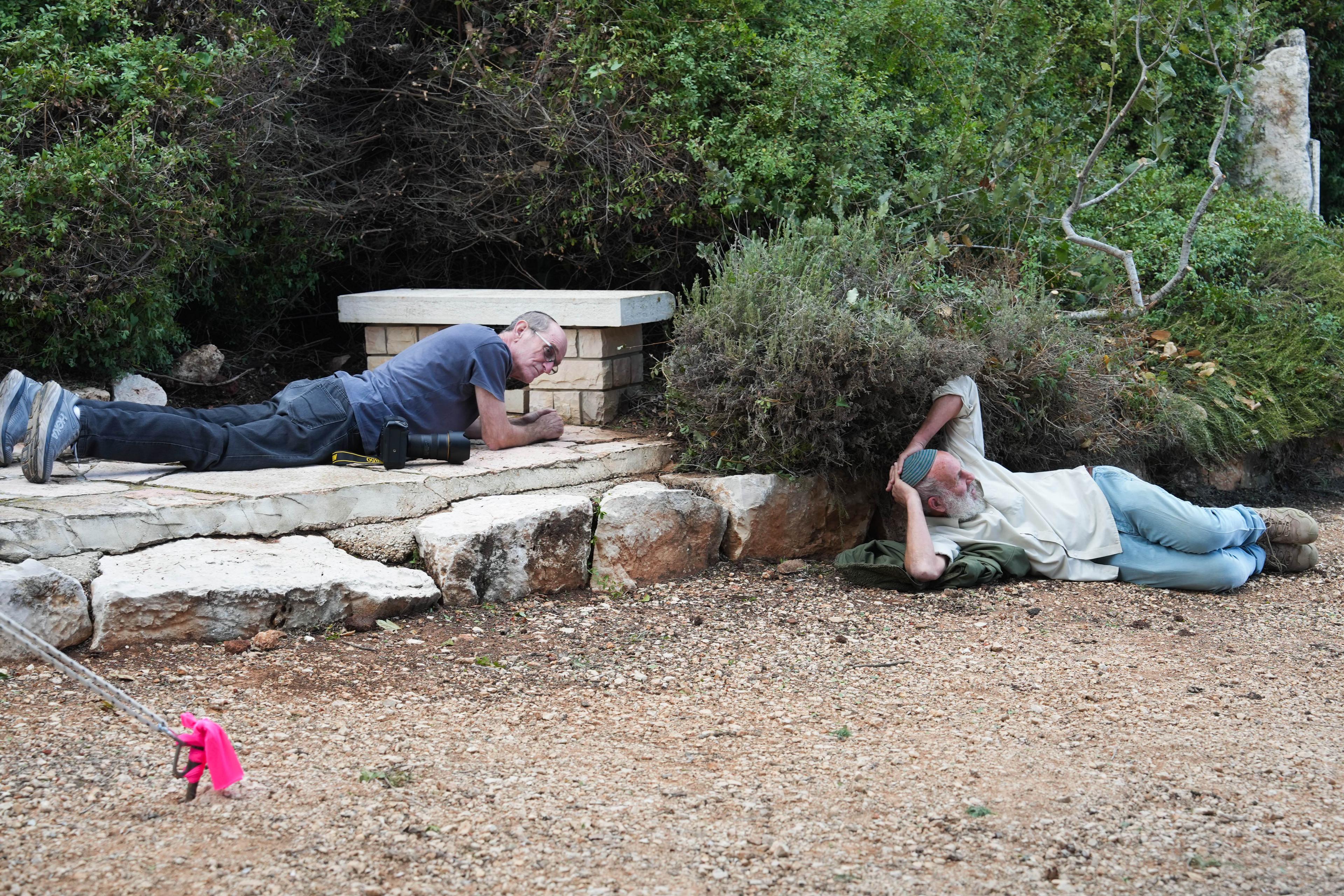During the chaos
Finding Inner Peace When Sirens Wail: A Guide to Self-Care During Rocket Attacks
In the spaces between sirens, we discover a deeper rhythm of resilience.

As sirens continue to pierce the air in many parts of Israel and phones buzz with urgent alerts, our bodies instinctively react with a flood of stress hormones. As this has been happening for more than 15 months in our small country, many people have been suffering as a result of the related stress. Whether experiencing rocket attacks in Israel or facing antisemitism abroad, the psychological impact of living under constant threat creates deep emotional turbulence. Yet even in these darkest moments, we can find pathways to inner stability and peace.
The first step in maintaining emotional equilibrium is counterintuitive - we must allow ourselves to feel. Many of us instinctively push away difficult emotions, believing that acknowledging fear or pain somehow makes us weaker. However, research and ancient wisdom both confirm that suppressing emotions only intensifies their power over us. Instead, we need to create safe spaces to experience our feelings fully. This might mean setting aside quiet time to cry, sharing vulnerabilities with trusted friends, or expressing emotions through creative outlets like journaling or art.
Managing our thoughts requires a different approach than processing emotions. While feelings need to be felt, thoughts need to be consciously directed. I often share with my students the analogy of a bus - when we find ourselves on a mental journey that leads to increased anxiety or despair, we have three choices. We can continue riding that thought-bus to its inevitable destination of increased suffering. We can analyze why we're on this particular bus, dissecting our anxiety but remaining trapped in its cycle. Or we can acknowledge where this mental journey leads and choose to step off the bus.
This doesn't mean ignoring real threats or necessary precautions. Rather, it means distinguishing between productive planning and unnecessary mental suffering. Planning emergency protocols with family members serves a purpose. Repeatedly imagining worst-case scenarios does not. When we catch ourselves engaged in non-productive worry cycles, we can consciously redirect our attention to present-moment awareness through deep breathing, physical movement, or focusing on immediate tasks.
Taking concrete action proves essential for maintaining psychological stability. While we cannot control external events, we can control our responses to them. This includes maintaining basic self-care routines - proper nutrition, regular exercise, and getting adequate sleep - even when sirens disrupt our normal sleep schedules. Small acts of self-nurturing, like taking a warm bath or listening to calming music, remind our nervous systems that we remain safe in the present moment.
The foundation supporting all these practices rests in spiritual understanding and trust. When facing situations that defy logical comprehension, we must remember that our limited perspective cannot grasp the infinite. Just as Abraham maintained trust even when commanded to sacrifice his beloved son, Isaac, we too can hold fast to our belief in ultimate meaning and purpose even when current events seem senseless.
This doesn't mean we shouldn't feel pain or grief - Abraham surely experienced profound anguish during his trial. Rather, it means maintaining awareness that our current suffering, however acute, exists within a larger context we cannot yet see. This perspective allows us to simultaneously honor our human emotions while holding space for divine wisdom beyond our understanding.
Community connection plays a vital role in maintaining resilience during a crisis. Whether gathering for prayer services, organizing support initiatives, or simply sharing a meal with friends, human connection reminds us we're not alone in our experience. Even when physical gathering proves impossible, maintaining virtual connections through phone calls or online meetings helps combat the feelings of isolation that can lead to elevated stress levels.
As Jews, our historical experience proves we can survive and even thrive through unimaginable challenges. By implementing these practical and spiritual tools - feeling our emotions fully, managing our thoughts consciously, taking productive action, maintaining faith, and nurturing connections - we create islands of inner peace even amid external chaos. While we cannot control the sirens, we can control our response to them, choosing life and light even in humanity's darkest moments.
Rabbi Cohen is a senior Lecturer at the Aish World Center in Jerusalem, and Founder/Director of Living in Tune: Authentic Jewish Mindfulness (www.litmindfulness.org).